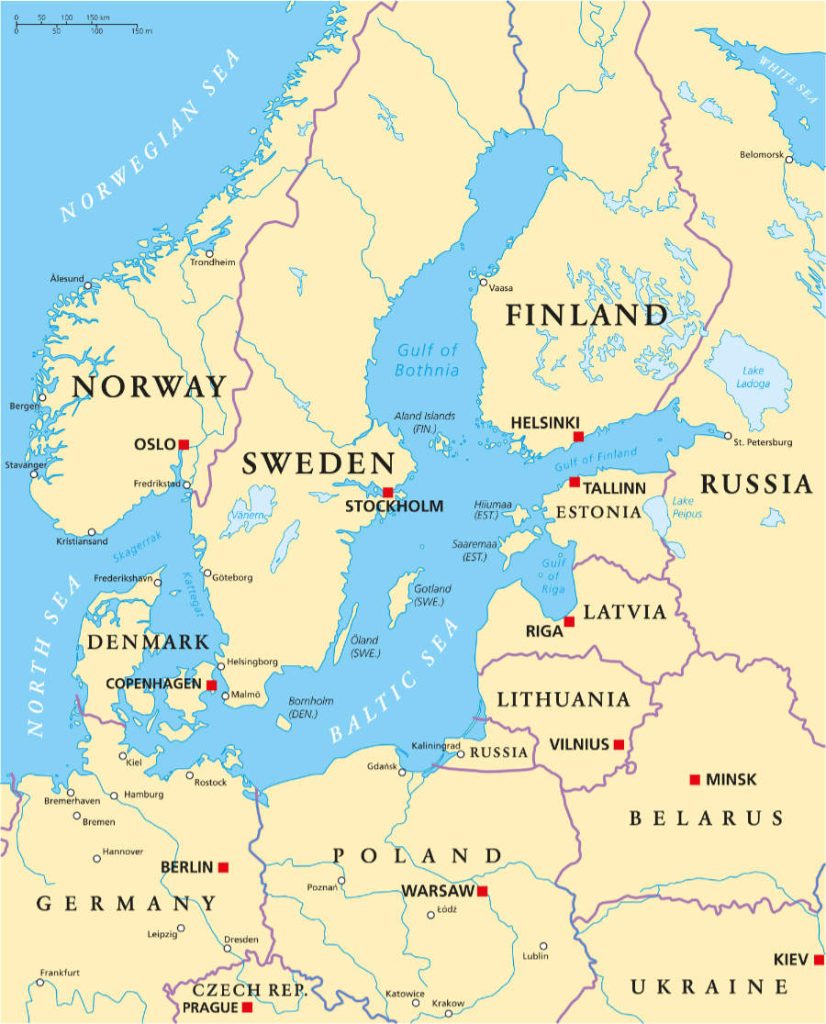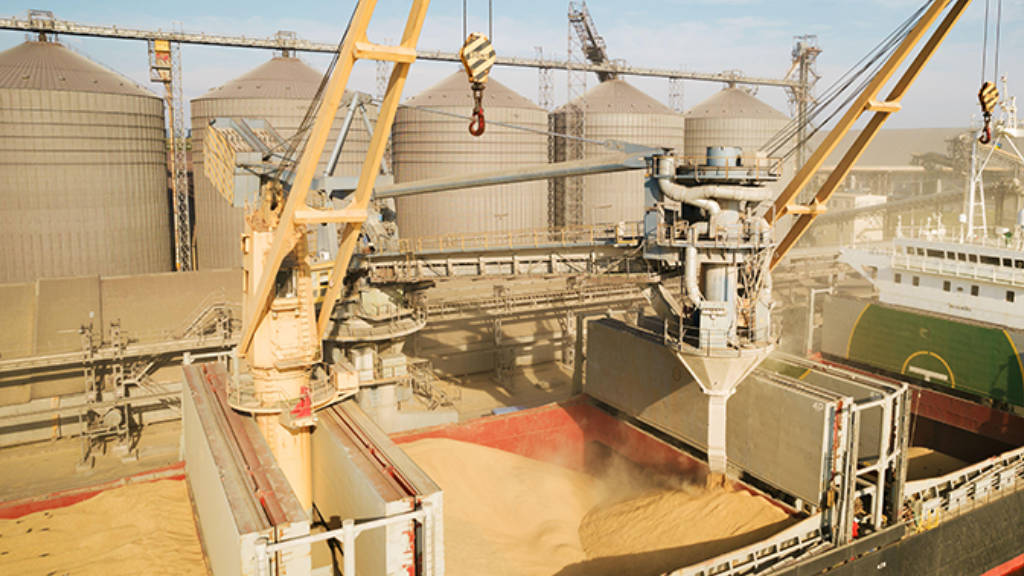Despite the European Baltic Sea nations closing their operations to Russian shipping – at some cost to their throughput – Russia has been expanding its Baltic Port capacities to meet new markets in Africa and Latin America. This goes hand in hand with Russian plans to boost agricultural exports by 50% by 2030.
Russia is the world’s largest grain exporter, and exported over 62 million metric tons of grain in the 2023/24 season. With increased productivity, it is looking at new markets in Latin America and West Africa to expand its trade from the traditional grain markets it has in North Africa and the Middle East.
In the last 18 months, Russia has launched two major ports, Vysotsky and Lugaport, in the Gulf of Finland, not far from St. Petersburg. Vysotsky shipped its first grain in April 2023, while Lugaport began operations in June this year and capacity is expected to reach 7 million tons by early 2025. The Vysotsky Port has been sending grain to consumers in Algeria, Brazil, Cuba, Mali, Mexico, Morocco, Nigeria and Tunisia.
The two ports have capacity to handle up to 15 million tons of agricultural exports, including grain, per annum. That would account for 25% of Russia’s 62 million tons of grain exports forecast for the 2024/25 season.
In comparison, the EU’s Baltic Sea ports have seen significant declines in cargo volume throughput since they closed their facilities to Russian shipping and supplies. Latvia’s Riga port has seen throughput decline by 20% while Estonia’s Tallinn port has seen volumes decline by 29%.
Ksenia Bolomatova, deputy head of Russia’s state-controlled agricultural conglomerate OZK said that “Last year, our record harvest showed that with the pace of loadings for exports, we do not have enough capacity.”
Russia’s President Putin set out a goal to increase agricultural exports by 50% by 2030 as part of a strategy to cement the country’s position as an agriculture superpower along with Brazil, the United States and China, while Russia has become the world’s biggest exporter of wheat, corn, barley, and peas in the last decade, – but further growth could be constrained by shipping capacity bottlenecks.
Novotrans, one of Russia’s largest logistics firms, stated that “The expansion of the Baltic Sea terminals’ capacity is a question of economic and transport security and sovereignty.” Russian trade flows and shipments have so far seen no major disruptions in the Baltic, where 96% of the coastline belongs to NATO members, including Estonia, Finland, and Sweden.
There have been comments made by politicians from these countries that NATO should block the Baltic Sea route to Russian ships as part of a new measure of sanctions. However, such statements have been badly received in Africa and Latin America as such moves would interfere with their food own security. This type of attitude is one reason why global opinion is moving away from the European position – often regarded as selfish without thought for other nations – regards sanctions upon Russia.

The decision to enhance capacity at Russia’s Baltic Sea ports comes as the West African and LatAm markets are easier to reach and have shorter delivery times than from Russia’s Black Sea ports, which are also being disrupted due to the ongoing conflict with Ukraine. Two weeks ago, a Russian vessel carrying grain to Egypt was hit in a rocket attack, while the Russian local government in Port Kavkaz said that Ukraine sank a ferry carrying fuel tanks intended for grain transshipment.
Russian exported 62 million tons of grain by sea in the 2023/24 season with 90% of supplies going via the Black Sea, mostly to markets in the Middle East and North Africa. This share is set to fall as Baltic Sea infrastructure grows.
Baltic Sea ports loaded 1.5 million tons of grain last season, a three-fold increase from the previous season but still just 2.4% of overall Russian exports. Darya Snitko, a Vice President of Gazprombank, one of Russia’s biggest lenders to farmers, said that “Logistically, the Baltic has many advantages for grains exports, and the capability of Baltic terminals to handle bigger ships should help reduce overall costs. Supplies from the Baltic Sea are more competitive than shipments from the Azov-Black Sea area when trading with countries in Africa.”
Further Reading
Russia Plans Maritime Cooperation With Sao Tome & Principe On The West African Coast

 Русский
Русский













